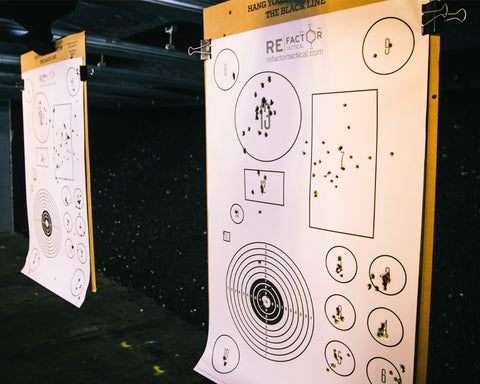So far in my life, I have studied and or learned: Russian, German, Indonesia, Spanish, and French. I say studied and or learned because studied German and Russian at the same time for four years but never really learned how to speak the language. However, one thing that studying all of these languages has done is give me a great idea of what it takes to actually learn a language. The quickest language I ever learned, French, was three weeks. After that time I was proficient enough to hold a decent conversation, read and comprehend a newspaper and listen to the news and understand 70-80% of what was being said. While actually mastering a language can be very tough, there are a few things you can do to be able to converse in a language and get around in a host country. With that being said, here are a few tricks:
Immerse yourself:
Most people who learn languages well are fully immersed. Anything less and you will be greatly prolonging your ability to learn. I spoke better french after 3 weeks of immersion training with the military than I did after the first two years of high school. The biggest thing was that we sat in a classroom for 8 hours a day learning the language. I also listened to French tapes in my car on the hour-long drive to and from class. I then went home and did homework for 1-2 hours after class. The full immersion allowed my brain to get used to actually hearing the language and learning the language. In the end, this was the only reason I was successful.
Want to learn a new language? Read our blog to find out the easiest language to learn
Use a good language learning software:
While you can’t learn a language by a learning software alone, you can help aid your learning with a good language learning program. The reality is that no-one has ever learned a language from a computer program alone. However, it does help you pick up the language a lot faster. These programs are great at focusing on key phrases and then pounding them in your head so that you never forget them. While there are a lot of great language programs out there I would recommend the following:
1. Rosetta Stone
2. Pimsleur
3. Rocket LanguagesWatch TV, Read a Newspaper, Listen to the Radio:
Again, immersion is huge. And getting an ear for a language is even more important. One thing that helps me is to take an article in a magazine or national newspaper like La Razon and translate it. The process of seeing a word, looking up the word, and then translating a word helps me to remember it. Also, an article will often have the same word over and over which helps you remember that word.
Get a Good Dictionary/Training Aid:
There are some great training aids out there for almost any language. I used a Spanish Grammar Quick Study when learning Spanish and the Quick Guide to Learning French when learning French. Both are great for quickly reminding yourself how to remember conjugation or simple words. Usually, if you know everything on those guides you are doing pretty well.

Learn the verb “to be”/present simple tenses:
The verb to be is “I am, you are, he/she is, they are, we are”. This is the most common verb that is used in pretty much any language and the building block of any language. If you want to learn any language, start here. After that focus on the other tenses of the verb “to be” such as past simple (I was, you were etc.), past participle (been), present perfect (has been), past perfect (had been). The sooner you can master this, the faster you can start to put together sentences.
Learn the most common verbs:
The 20 most commonly used verbs (in English, although it tends to be the same for most languages) are:
- to be
- to have
- to do
- to say
- to go
- to get
- to make
- to know
- to think
- to take
- to see
- to come
- to want
- to look
- to use
- to find
- to give
- to tell
- to work
- to call
Learn the most common nouns:
The 30 most common nouns of a language tend to vary based on the region of a language. For example, Prime Minister is a very common noun in one language and President is another common noun in another because of the country’s different political systems. However, these do tend to be some of the most common nouns:
- time
- year
- people
- way
- day
- man
- thing
- woman
- life
- child
- world
- school
- state
- family
- student
- group
- country
- problem
- hand
- woman
- boy
- girl
- mother
- father
- number
- place
- house
- morning
- afternoon
- evening
Learn how to count to 100:
Obviously learning to count higher is essential, however, if you can at least count to 100 you can get by in almost any language.
Learn these questions:
There are a lot of questions that will help you but I have found memorizing these common questions will help you out a lot, especially if you’re using the language in real life:
- Where is the…
- How do you say…
- How much for…
- How far
- When
- Where
- How
- Why
- Who
- Do you speak English?
- Can you help me?
- How are you?
- Are you?
- Am I?
- Are they/we?
While the above is not a definitive guide it is a great place to get you started. Generally, if you know the above you are well on your way to learning a language. The biggest thing missing from here is conjugation. However, if you know how to conjugate the verbs above into at least the present tense you will be able to converse fairly well.
Can you learn a language at home?
I do have a lot of people ask me how to learn a language at home. The answer is it’s really not possible. You actually need human interaction to learn a language. I’d highly recommend taking classes if you’d like to learn a language.
Interested in learning a new language? Read our blog and find out how long it takes to learn a language
Methods of learning a language
There are a lot of different methods to learning a language. Some people try to learn a language through a language software program while others go to a class. The quickest way to learn a language is to take an immersion course in a country. You can learn a language in 3-4 weeks by going to a country and taking a language class in that actual country.







Leave a Reply
Your email address will not be published. Required fields are marked *